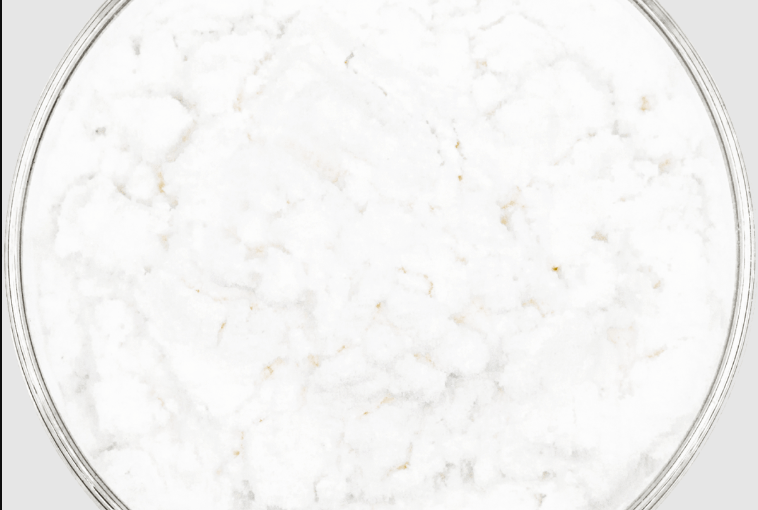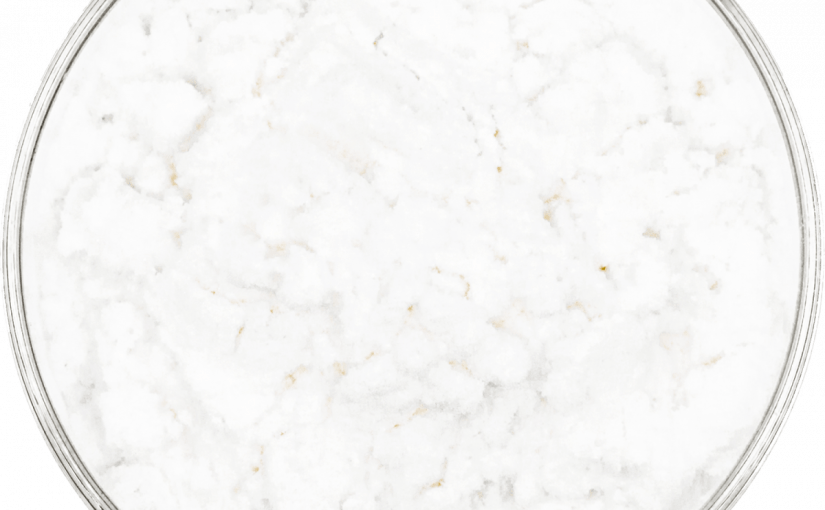Since hemp and its extracts became fully legal in late 2018, wellness experts have embraced cannabis with zeal. Cannabidiol (CBD) has so far been the star of the show, leaving many consumers wondering, “What is CBD, and what can it do for me?”
CBD, however, is not the only cannabinoid found in Cannabis sativa. Another supplement that you may not be familiar with is cannabigerol, also known as CBG Isolate Bulk, which has recently gained attention for its potential wellness applications.
Cannabigerol (CBG) is one of approximately 120 cannabinoids found in Cannabis sativa, but it is likely one of the lesser-known compounds. It does, however, play a significant role in which CBD and many other cannabinoids are involved.
CBD products derived from hemp extracts provide a variety of wellness support options to consumers. And you’ve probably noticed that CBG is present in a lot of these products. But what is CBG exactly, and how does it differ from CBD and other cannabis extracts?
We’ll discuss the history of CBG, how it compares to CBD, potential CBG benefits, and where consumers can find it.
What Is CBG and Where Does It Come From?
CBG is a non-intoxicating compound found in Cannabis plants that has a number of potential human applications. In other words, CBG is derived from hemp, is not intoxicating, and may provide similar wellness benefits to CBD.
Researchers classify CBG as a minor cannabinoid because cannabis plants produce less of it than major cannabinoids like CBD and tetrahydrocannabinol (THC). CBG typically makes up less than 1% of the weight of the cannabis plant.
However, the plant requires cannabigerolic acid (CBGA), an acidic form of CBG, in order to produce CBD and THC.
CBG, also known as a “mother cannabinoid,” is the organic compound that gave rise to CBD and other cannabinoids. CBG is found in cannabis plants as cannabigerolic acid (CBGA) and acts as a building block for several other cannabinoids.
Plant enzymes convert the majority of CBGA in maturing cannabis plants into the acidic forms of CBD and THC, CBDA and THCA, respectively. Decarboxylation occurs when plant matter is exposed to ultraviolet light or heat, converting those acids into CBD and THC. CBGA can be converted into CBG via the same decarboxylation process as the major cannabinoids, but on a much smaller scale.
CBGA is converted into cannabidiolic acid (CBDA), tetrahydrocannabinolic acid (THCA), and cannabichromenic acid (CBCA) as a cannabis plant matures (CBCA).
Only trace amounts of the CBGA cannabinoid remain inside a mature cannabis plant after it is converted into those other molecular compounds. When heated, each of these structures loses a carbon element and transforms into its more recognisable form – CBG, CBD, CBC, or THC.
As a result, less CBG is available for extraction and use. As a result, CBG extraction and production costs are significantly higher than those of other cannabinoids. This is because a specialised chromatography mechanism is required to precisely isolate and purify CBG Distillate Wholesale extracts without using an increased amount of raw hemp materials.
Botanists have begun work on developing hemp strains with higher levels of CBG. Plants can also be harvested earlier in the growing cycle to maximise CBG Distillate Wholesale extraction. However, much work remains to be done on this front.
Finally, all of this implies that CBG is costly and difficult to extract in large quantities. As a result, wellness formulas with CBG as the main ingredient are extremely uncommon. Because CBG content in cannabis plants converts to other cannabinoids such as CBD as they mature, CBD is more abundant. This higher CBD abundance could explain why CBD is more recognisable and popular among users of cannabinoid products.
Because CBG is not as common as CBD oil, there isn’t as much information available to answer the question “what is CBG Oil Wholesale or CBG Distillate Wholesale products?” This makes it more difficult for you, the consumer, to learn more about this lesser-known cannabinoid. Though preliminary research suggests that this minor cannabinoid has promise, there is still much to learn about it.
What Is the Distinction Between CBG and CBD?
We can better understand how CBG differs from CBD now that we’ve answered the question “what is CBG?”
CBD and CBG effects, as well as how they work or communicate with your body via the endocannabinoid system, or ECS, differ significantly due to minor molecular differences between the two substances.
According to the researchers, CBG appears to bind well to cell receptors in the ECS. As a result, CBG may cause an immediate reaction.
According to studies, CBG molecules can partially bind to CB1 receptors, which are cannabinoid connectors found in the brain that make up half of the endocannabinoid system and may be the primary reason it works against THC effects. One of the most intriguing properties of CBG is its ability to reduce the effects of THC.
Other evidence suggests that CBG may have an effect on CB2 receptors, but the findings did not specify how. Researchers believe that CBG contributes to the “entourage effect” by interacting with other cannabinoids and terpenes. This combined effect is frequently discussed in the cannabis and CBD communities, and it is worth noting that CBG influences not only the formation of cannabinoids but also how they interact with one another.
CBD, on the other hand, appears to have a lower affinity but still has the ability to affect these receptors in a different way. It may prevent receptors from interacting with other substances rather than binding to them.
Furthermore, CBD molecules may bind to CB2 cannabinoid receptors, whereas CBG may bind to both CB1 and CB2 receptors. Both types of receptors communicate with various biological systems in your body. Naturally, maximising this activity by incorporating multiple cannabinoid types into CBD products can help you reap more benefits from cannabinoid use. This is due to increased binding site interaction as well as the entourage effect.
So, while CBG Isolate Wholesale and CBD work differently due to their molecular makeup, the benefits also differ due to the binding sites they use within the ECS.
What Are the Benefits of CBG?
Medical researchers have conducted numerous studies in order to discover the various CBG Oil Wholesale benefits. CBG and its effects on the human body were the focus of these studies. Their findings give plenty of reasons to be excited about CBG’s potential benefits, but keep in mind that these are only preliminary findings.
Because they used large doses of isolated CBG in non-human test subjects, these studies do not provide conclusive evidence that CBG Oil Wholesale benefits are useful to treat or prevent any disease in humans. Supplemental servings in today’s wellness products will not produce the same results.
Researchers still have a lot of work to do on the subject, but the preliminary evidence has piqued the interest of many medical professionals.
So, exactly what does CBG Isolate Bulk do? Consider CBG Isolate Wholesale benefits as a supplement to good health practises such as a balanced diet, regular exercise, and adequate sleep.
CBG Isolate Wholesale has a lot of potential, according to preliminary scientific investigations and findings. And if manufacturers can extract the cannabinoid for CBG Oil Wholesale more easily and cheaply in the future, it could pave the way for a bright future in the cannabis industry.
Plant cross-breeding and genetic manipulation have already been used to produce larger amounts of CBG Isolate Wholesale. Scientists are also investigating the optimal extraction time to extract higher CBG Isolate Bulk content from growing cannabis.
Scientists are moving forward with promising future research utilising CBG Isolate Wholesale or expanding its abilities by combining it with other cannabinoids to establish more safe and natural alternatives for maintaining overall wellness.
Where Can You Buy CBG Isolate in Bulk?
CBG Isolate Bulk is present in trace amounts in all full-spectrum and broad-spectrum hemp products, as well as dozens of other cannabinoids.
The concentration of CBG Isolate Bulk in these products is comparable to that found in hemp plants. Hemp strains grown for wellness products currently have high levels of CBD and very little CBG – usually less than 1%.
There are a few CBG-rich hemp extract products on the market, but they are fairly expensive. A hemp product’s label should accurately describe its contents, but this is not always the case. Hemp manufacturers frequently change their ingredient lists.
You can use an independent lab test to determine whether a hemp product contains CBG Isolate Bulk. The majority of lab reports include a detailed list of which cannabinoids are present and in what concentrations.
Bonavoluntate Superior Broad Spectrum formula products such as tinctures, capsules, topicals, and sleep aids contain CBG Isolate Wholesale.
Furthermore, Bonavoluntate broad spectrum hemp extracts provide something that other brands do not: consistent cannabinoid levels across all product batches.
The CBD content of most full-spectrum and broad-spectrum extracts is consistent, but the levels of other cannabinoids, such as CBG Distillate Wholesale, vary between batches. In order to correct these inconsistencies, Bonavoluntate employs third-party testing to ensure quality and batch consistency.

